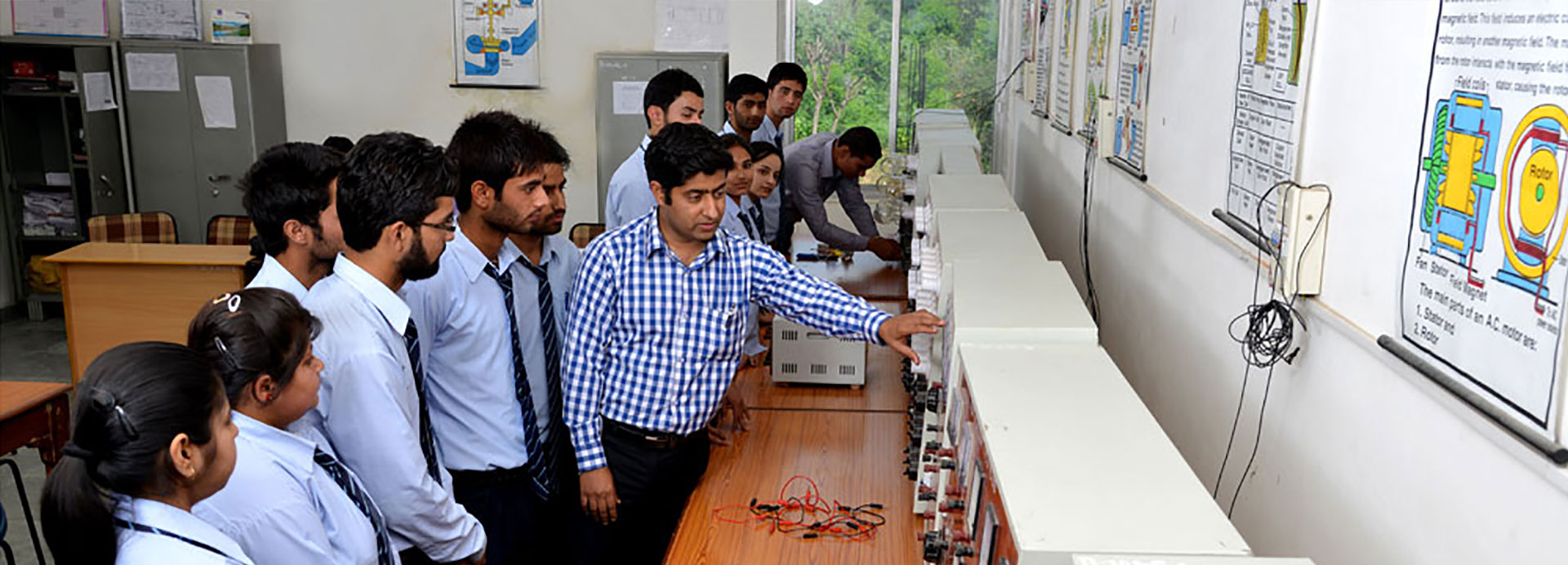
- Admission Helpline
- 9418318394, 9815559408
Department Introduction
Electrical Engineering has a great influence in almost all spheres of our life therefore Electrical Engineers by virtue of their profession are involved in all areas of our modern society. They design, develop, test and manufacture the electrical equipment. The range of such equipment varies from power generators, transmission devices to home appliances.
Vision of the Department
To emerge as a department of eminence in electrical engineering in serving the industry and
the nation by empowering students with high degree of technical and practical competence.
Mission of the department
M1 To strengthen the theoretical and practical aspects of learning process by strongly
encouraging a culture of research, innovation and hands on learning in electrical
engineering.
M2 To encourage a long term interaction between the department and industry
through the involvement of industry for hands on implementation of course
curriculum.
M3 To widen the awareness of students in professional, ethical, social and
environmental dimensions by encouraging their participation in co-curricular,
extra-curricular and CSR activities.
Program Specific Outcome (PSOs)
PSO 1: Apply knowledge of mathematics, engineering sciences and multidisciplinary knowledge
to the solution of electrical engineering problems.
PSO 2: Apply research-based knowledge, appropriate techniques, IT tools to complex electrical
engineering problems including design, analysis, interpretation of data, and synthesis of the
information to provide valid conclusions.
PSO 3: Apply ethical principles engineering profession and recognize the need of independent
and lifelong learning for professional development and personnel growth.
Program Educational Objectives (PEOs) of the department
The Program Educational Objectives of the Electrical Engineering undergraduate
program are for graduates to achieve the following, within few years of graduation. The
graduates of Electrical Engineering Program will
PEO 1: Engage in successful careers in industry, academia, and public service, by
applying the acquired knowledge of Science, Mathematics and Engineering, providing
technical leadership for their business, profession and community
PEO 2: Establish themselves as entrepreneur, work in research and development
organization and pursue higher education
PEO 3: Exhibit commitment and engage in lifelong learning for enhancing their
professional and personal capabilities.

